Heavy clashes erupt between protesters, police outside Lebanon’s central bank
Bitter clashes have broken out between a group of demonstrators and police forces outside the central bank of Lebanon, officially known as Banque du Liban, as the country is currently in its worst economic and financial crisis in decades that has sparked nationwide protests.
Protesters demonstrated against the economic and financial policies in Lebanon on Tuesday, and demanded a major overhaul of the banking sector.
They also distributed leaflets reading “We are not paying” among passersby, asking all Lebanese to stop paying taxes and fees to the government and refrain from paying back their loans to banks until they are able to get their full rights.
Security forces then intervened, triggering heavy clashes with the demonstrators as the latter were attempting to block the road.

Elsewhere in the southern city of Tyre, protesters stood in front of Banque du Liban's branch, chanting against Governor Riad Salameh and demanding the release of people's money from banks.
Earlier in the day, Lebanon's caretaker finance minister accused the country's banks of “trapping” civil servants' salaries with withdrawal limits.
“What is happening in some Lebanese banks is unacceptable. They are trapping the salaries of (state) employees that are transferred by the finance ministry every month,” Ali Hassan Khalil wrote on his Twitter page.
Khalil noted it was a “sacred right” of civil servants to be paid in full and on time.
“It is not permissible for this right to be violated,” he said, vowing legal action to ensure public servants can access their salaries in full.
Government formation on right track: Prime Minister-designate
Meanwhile, Prime Minister-designate Hassan Diab has lauded efforts aimed at the formation of Lebanon's new government, saying, “Things are going on the right track.”
His remarks came following a meeting with President Michel Aoun at the Baabda Palace on Tuesday evening.
Local LBCI television network reported that the two officials exchanged viewpoints on the structure of the upcoming government, the number of ministers, and the people who will be heading the ministries.
It went on to say that the cabinet will likely be comprised of either 18 or 24 members.
Diab has vowed to form a government made up of “independent specialists,” who do not belong to political parties.
Both Parliament Speaker and leader of the Amal movement Nabih Berri, and officials from Hezbollah resistance movement have called for the formation of a techno-political government, which embraces and represents all parties.
Lebanon has been facing a very tough economic situation because of the failing policies of successive governments, which have led to the impoverishment of the people.
Growth in Lebanon has plummeted in the wake of endless political deadlocks and an economic crisis in recent years.
The country hosts 1.5 million Syrian refugees, and their presence is often blamed for putting pressure on the already struggling economy.
Unemployment stands at more than 20 percent, according to official figures.
The Lebanese Finance Ministry says the national debt is hovering around $85 billion, which accounts for more than 150 percent of Gross Domestic Product (GDP).
Successive governments have also failed to address a waste management crisis or improve the electricity grid, which is plagued by daily power cuts.
On October 29, then Prime Minister Sa’ad Hariri submitted his resignation to President Aoun.
Under the constitution, Hariri’s cabinet would stay on in a caretaker capacity until a new government is formed.
The protests began on October 17, when the government proposed imposing a tax on Whatsapp calls, along with other austerity measures.
Protesters in Lebanon have stopped blocking roads and setting up barricades, and instead shifted to holding sit-ins at state-affiliated sites.
They say they will maintain pressure on the political establishment until their demands for the departure of the ruling elite and an end to chronic economic mismanagement and corruption are met.
Relentless Israeli ceasefire violations justify need for self-defense: Lebanese MP
Tel Aviv tells Damascus Israeli forces will remain in occupied territory: Report
Dec. 22: ‘Axis of Resistance’ operations against Israeli occupation
‘Abhorrent’: Oxfam says only 12 trucks delivered aid in North Gaza since Oct.
VIDEO | Leader receives religious eulogists on Hazrat Fatima birth anniv.
Pope Francis slams Israel’s ‘machine-gunning’ of Gaza children
US hostage-taking of Iranian nationals violation of intl. law: Deputy FM
VIDEO | Carol Singers for Palestine on London’s Parliament Square


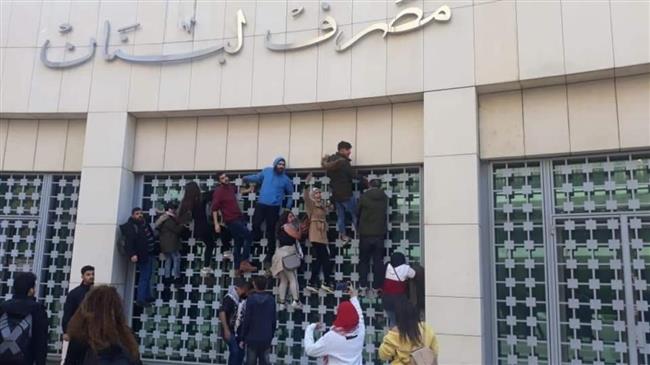




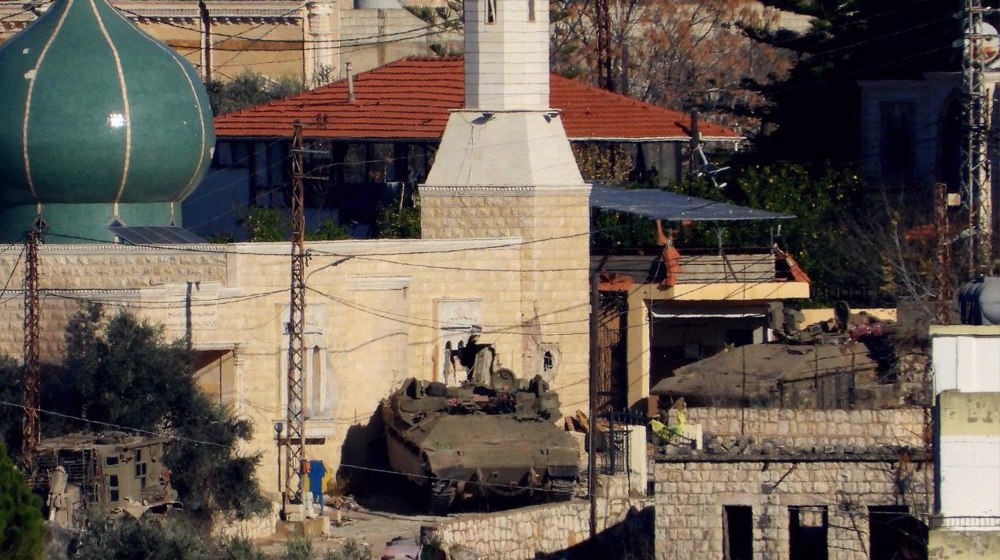




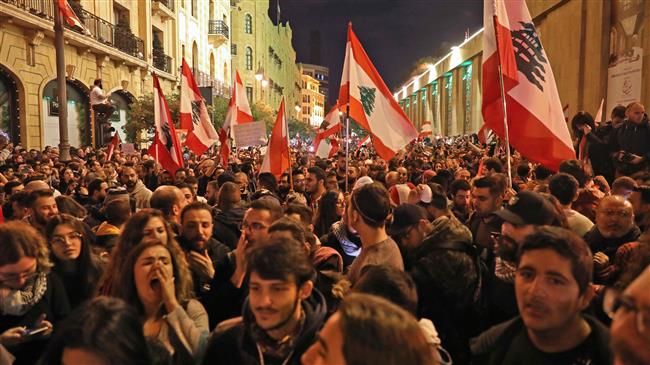
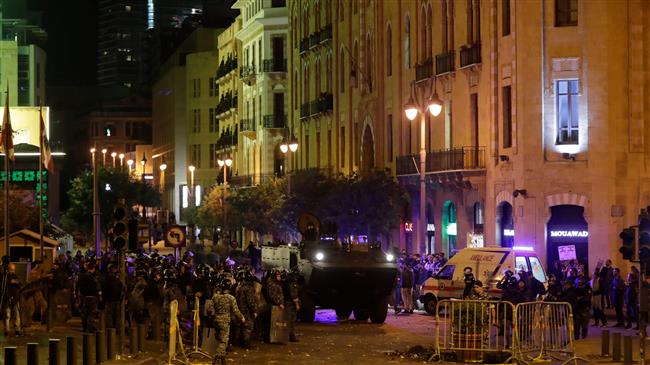
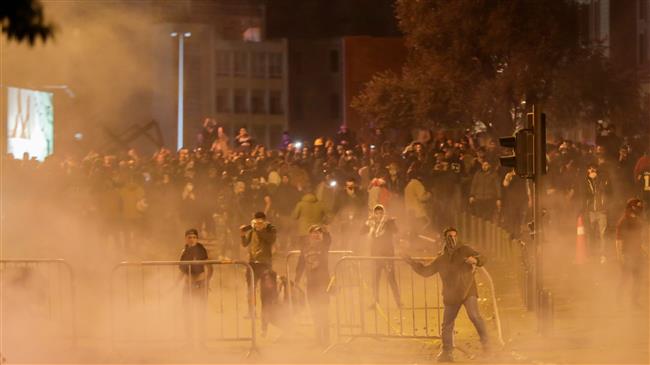
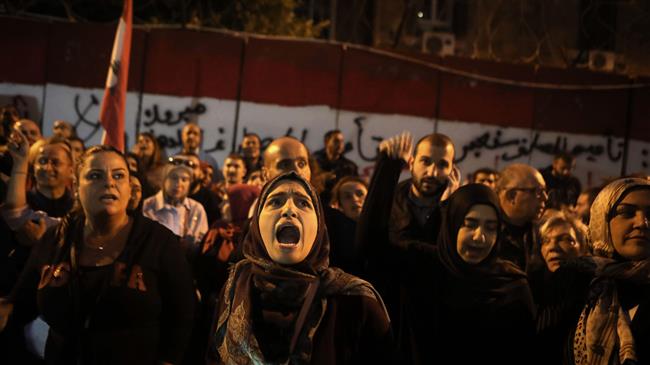





 This makes it easy to access the Press TV website
This makes it easy to access the Press TV website